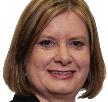DECLINE IN REPORTED LEARNER PREGNANCIES – WESTERN CAPE
Schools in the Western Cape have reported a decline in learner pregnancies over the past three years from 2 880 in 2015 to 2 148 in 2017. The figure for 2016 was 2 412. The reports refer to totals for the previous year, based on the WCED’s annual survey reports.
Teenage pregnancy is one of the biggest challenges that we face in our schools, and several programmes in our schools are contributing to the decline in instances year-on-year.
Pregnant teenagers face serious health, socio-economic and educational challenges. It is of grave concern to me that so many of our learners in the Western Cape fall pregnant whilst in school. In 2017, although stats are down, an alarming 2 148 learners fell pregnant.
The Western Cape Education Department has taken an active role in seeking to understand and effectively address the challenge of teenage pregnancy, as it impacts significantly on learners. The WCED has conducted a number of pregnancy prevention workshops targeting female AND MALE learners from Grade 5 – 11.
The course content focused on important topics such as Teenage sexuality, Healthy relationships, Sexting and the Emotional and legal consequences of sexting, Understanding pregnancy, How to avoid teenage pregnancy (targeted at boys and girls), Challenges of being a teen parent and The importance of completing high school and beyond.
It is crucially important that young girls and boys are aware of the consequences of teen pregnancy.
In addition, in collaboration with the Department of Health (DOH), we have set up Wellness Centres that are run at two high schools in a community with a very high prevalence of learner pregnancies. At the Wellness centres, learners have the opportunity to access information regarding health issues, including sexual health and family planning. The centres are run at the schools to eradicate the stigma attached to teenagers visiting the local health clinics, something that usually prevents them from accessing health care and advice from these clinics.
The Cape Winelands Education District in 2016 launched a pregnancy prevention program targeted at male learners that focuses on the role of the male partner in pregnancy prevention.
These projects and courses are ongoing and we hope that the number of programmes that have been run in schools and districts has contributed to the decline in learner pregnancy in the province. It is my hope that these courses and projects will empower our learners to make responsible choices, and that it will assist in providing them with essential coping skills to stand up to peer, societal and social media pressures.
The WCED also has a policy on managing learner pregnancy that is designed to encourage pregnant learners to remain at school and provides guidelines to all concerned to make this possible. The aim of the policy is to ensure that pregnant learners stay at school and complete their schooling.
The policy recognises that all concerned have roles and responsibilities in this situation, including the school, the parents of the unborn child, and the families concerned. In each case, the principal must discuss these responsibilities with the learner and her parents and must sign an agreement on these responsibilities.
The department treats pregnant learners sensitively as learners with special needs, with access to counselling by social workers and psychologists based in our district offices.
The WCED also employs social workers in every circuit who work with other departments and agencies, the individuals concerned and their families to address broader societal issues.
We do so in line with the Western Cape Government’s “whole of society” approach to dealing with these issues.
Addressing teenage pregnancy is a battle that requires the active involvement of all stakeholders, if it is to be well fought.
In some cases, teenage pregnancy is as a result of peer pressure or sexual assault. Support and counselling is available for these learners. Any learner who has been subjected to abuse, may report this to the Safe Schools Hotline – 0800 45 46 47, or to their school principal. Learners can also seek advice from the Safe Schools Hotline.
Together we need to create awareness around teenage pregnancy, and the negative effect that falling pregnant at a young age can have on the girl learner, her unborn child and on society itself.
We must work together to ensure that our young girls complete their education with the necessary support.
Statement issued by Debbie Schäfer, Western Cape MEC for Education, 12 July 2018

